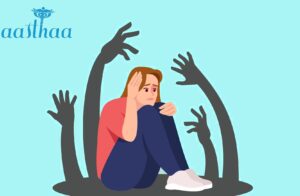FAQs
FAQs on Schizophrenia

A person with schizophrenia can choose to simply quit from illness via counselling.
Schizophrenia cannot be cured, but it can be treated and controlled with medication, psychotherapy, and strong community and family support. Early diagnosis aids in the better management of the symptoms of schizophrenia that cause an individual discomfort.
Schizophrenia is chronic debilitating severe psychiatric illness which most of time needs medication. Hence we do not have substitute of medication. Counseling can be helpful if we continue medication.
Schizophrenia people cannot work
Most of patient with schizophrenia can do normal function at work and at home with new medication. Earlier medication use to have severe side effect which hampered patients functioning.
According to new studies, persons with schizophrenia can live freely, pursue higher education, and work hard jobs. Many people do, in fact, manage their illnesses and lead full and productive lives.
A person with schizophrenia is more likely to be violent
Patient with schizophrenia can become violent only in certain acute conditions otherwise they are mostly stable with medication. Research have not suggested any increase in violence with of patient with schizophrenia.
While most persons with schizophrenia are not aggressive, one of the reasons a person with schizophrenia may require hospitalisation is because of violence. It’s a strategy to keep the person or those around him or her safe until the violence-related delusions or hallucinations dissipate.
Schizophrenia is illness of mind and not related to brain?
Schizophrenia is a complex mental health condition that is linked to psychosis. There are a lot of misunderstandings concerning it. Even mental health doctors are divided on the subject. However, it is estimated that one out of every 100 people will be diagnosed with this disease at some point in their lives.
Schizophrenia is a psychiatric illness with either abnormality in certain part of brain structure or chemicals in brain or functioning of brain parts or all or some of above. In fact, all psychiatric illness has some or other brain pathology.
All my children have schizophrenia if I am having?
Risk is 1 percent in the general population, having parent or sibling with schizophrenia increases the risk to 10 percent. The risk jumps to 50 percent if both parents have been diagnosed with schizophrenia. So it is not rational to think that if I have it my children will have it.
My daughter has schizophrenia, will marriage cure it?
This is common misconception that marriage cures mental illness. In fact, it might worsen it. Marriage brings with it hosts of stressors which patient with schizophrenia will find it difficult to cope. Proper treatment planning, functional assessment, is must before marriage. Disclosing illness to other party is strongly recommended for proper care of patient in future.
I have started homeopathy medicine. It will cure me from schizophrenia.
Schizophrenia is severe psychiatric illness. Research have said that 20 percent patients don’t need long term treatment. They get cured. 60 percent need long term treatment. 20 percent do not respond to any treatment and they carry good amount of symptoms in spite of medication. Changing pathy either homeo or ayurvedic should be discussed with psychiatrist. Pros and cons of discontinuing antipsychotic medication should be discussed. Risk of flaring up of psychotic symptoms and later management should be planned. Choosing pathy is right of patient and family members but should be well informed and planned.
Patient with schizophrenia needs to be in hospital lifelong.
With advent of new medication hospitalisation is limited. Treatment is mostly community based.
Mental Peace.
We Take Care of What Matters You Most!
Psychiatrist in Nagpur, Sakkardara – Dr. Pawan Adatia
